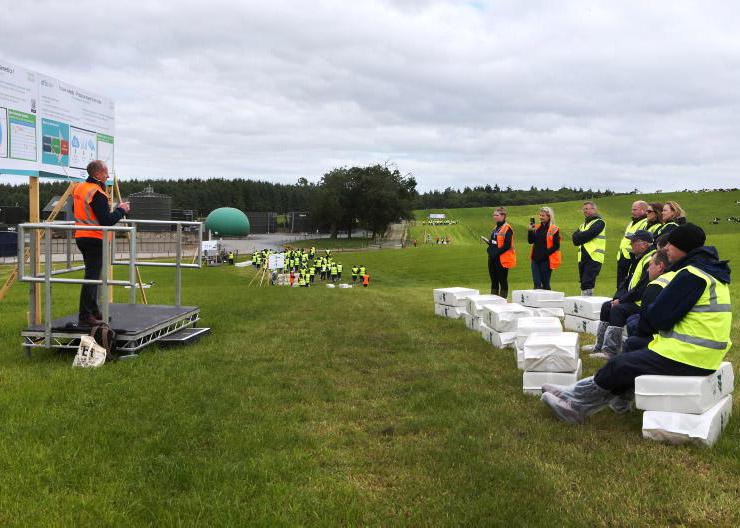The case for slashing livestock numbers in the UK is made repeatedly by Henry Dimbleby in his new book Ravenous.
The restaurant chain owner and former UK government adviser argues that having fewer grazing livestock will free up land for environmental purposes, including tree planting and so-called rewilding.
“An astonishing 85% of the farmland that feeds us, here and abroad, is used for rearing livestock – either pasture or to grow crops for animal feed. This is wildly inefficient,” he writes.
Dimbleby frames the argument in terms of calories, a measure of energy intake in our diets. He points out meat, dairy and eggs provide only 32% of the calories that UK consumers eat.
But there is more to a healthy diet than energy intake, as Dimbleby knows.
If it just came down to fulfilling calorie demand, we could meet all our dietary needs by eating Mars bars.
Remember, livestock provide us with high-quality, digestible protein and lots more. How much of our protein, iron, calcium, or vitamin B12 needs can be met from livestock products? We don’t find out in Ravenous, unfortunately.
Strangely, in the later stages of the book, Dimbleby rubbishes calories as a dietary metric altogether. “Stop worrying about calories – which tell you next to nothing about the contents of your food,” he writes.
Could it be suggested that calories also tell you next to nothing about the nutritional output of UK livestock farms too?
Emissions
The other key argument put forward for cutting meat and dairy consumption, and therefore ruminant livestock numbers, comes down to greenhouse gas emissions.
In fairness to Dimbleby, he points out early on that the current system used for comparing different greenhouse gases does not accurately reflect the global warming effect of methane, which is emitted by ruminants.
“If the number of ruminants on the planet does not increase, the methane in the atmosphere will stabilise over 12 years. The existing ruminants will not warm the planet any further than they already have,” the book states.
However, instead of arguing that livestock are unfairly treated in the current climate change debate, Dimbleby looks at it a different way.
He suggests that methane emissions should still be cut rapidly, as it will have a much greater effect on stabilising global temperatures than similar cuts to carbon dioxide, which comes from burning fossil fuels.
Strictly speaking, that is correct, although I can’t help thinking that livestock farmers are being asked to do the jail time for the crimes of the fossil fuel industry.
Polluter pays
For me, one of the standout pieces of the book is a short footnote which references a scientific paper by Professor Myles Allen. In the paper, the University of Oxford academic proposes that it should be mandatory for fossil fuel companies to pay for their carbon dioxide to be captured and stored.
“Although carbon capture technology is still expensive, the profits made by fossil fuel companies are even bigger. Using the ‘polluter pays’ principle, they should be forced to clean up their own mess,” the footnote reads.
There are several other parts of Ravenous where I found myself nodding agreeably. For example, Dimbleby is highly critical of the UK’s post-Brexit trade deal with Australia, mainly because the country has lower production standards than the UK.
“At a time when the government is asking our own farmers to raise their environmental standards higher than ever, the Australian trade deal was an extraordinary failure of joined-up thinking. It must not be repeated,” he writes.
Although he is no longer an adviser to the UK government, Dimbleby’s book gives an insight into some of the thinking that could be influencing policymakers in London. For farmer readers, some of Ravenous is comforting, but a lot of it is worrying.









SHARING OPTIONS